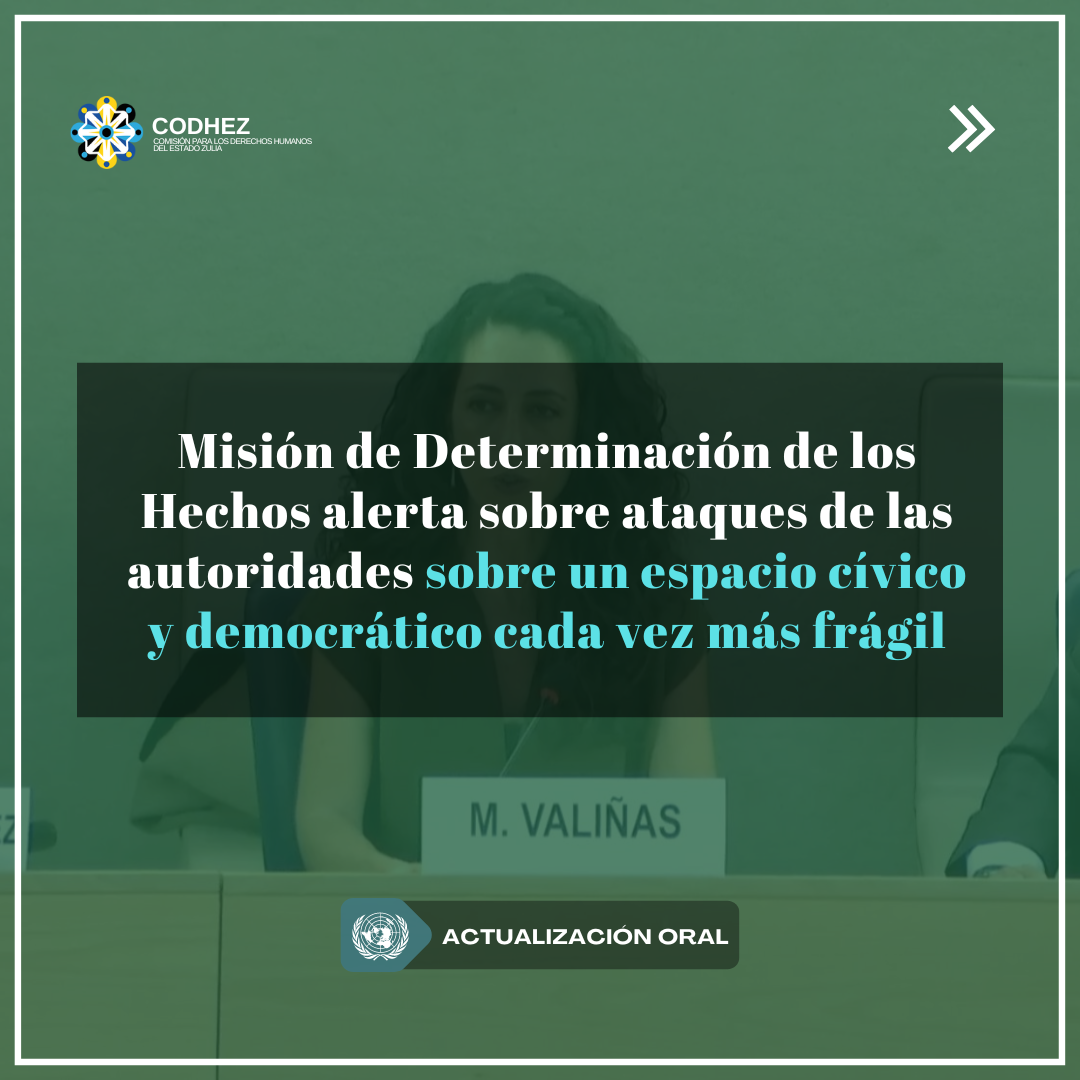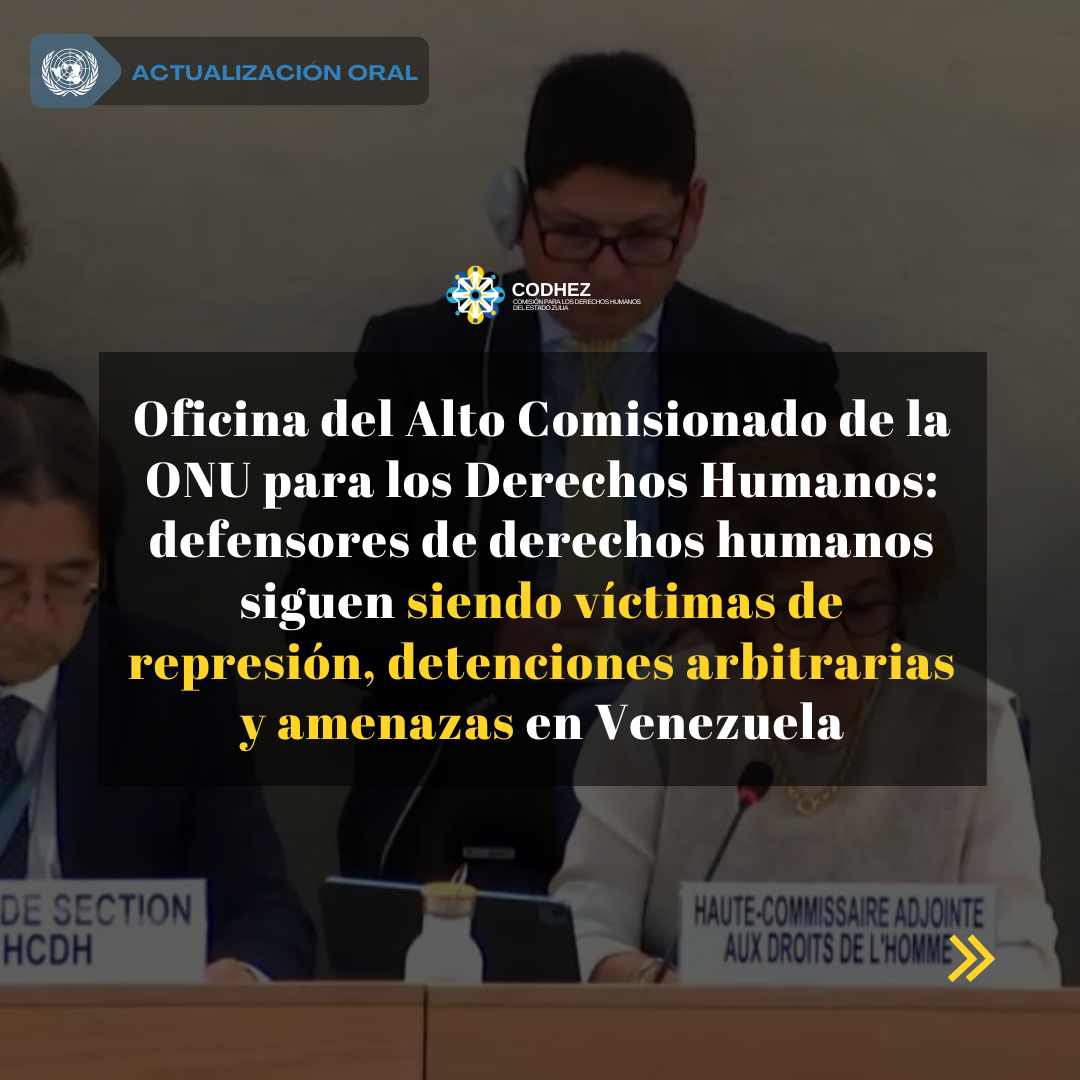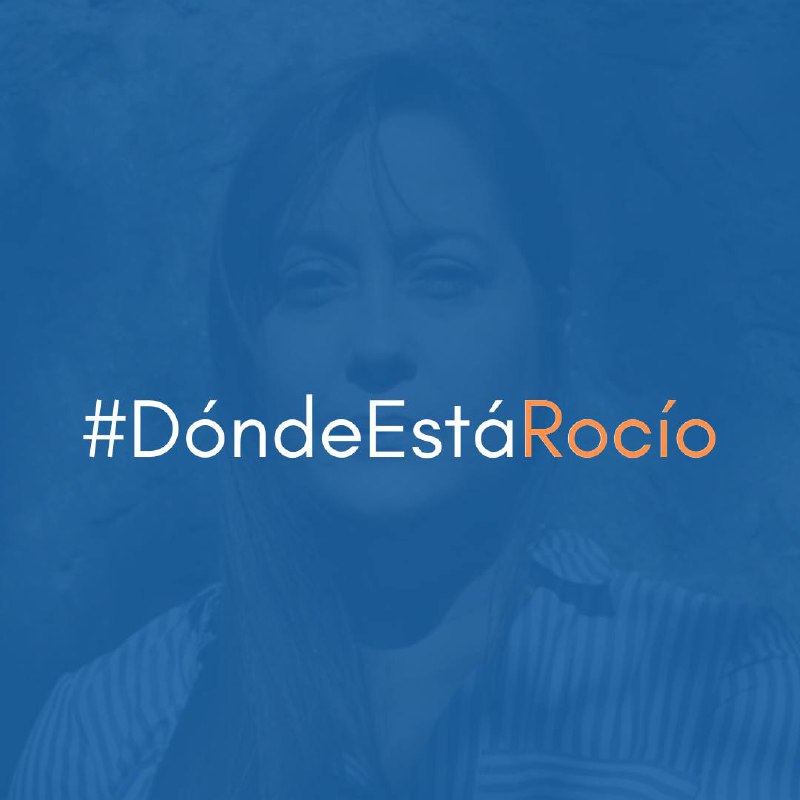Human Rights unawareness in Zulia becomes more serious and evident
The exceptional measures dictated by the national, statal and municipal governments in the framework of the pandemic of Covid-19 have implied serious, arbitrary, and disproportionate limitations to the exercise of rights such as access to healthcare, proper alimentation, education, freedom of movement, or information among others, whose consequences are reflected in an evident deterioration in life quality.
The Comission of Human Rights in the State of Zulia (Codhez) highlights it in its May 2020 bulletin concerning the human rights situation in the region.
Codhez points that last May 12th, the National Executive dictated the decree number 4, 198, which has extended 30 days the state of alarm stablished since March 13. This implies the second extension of this kind of state of exception, even though the foretold regulation in the 338 article of the Constitution permits only one extension of 30 days.
During May, the restriction to circulation and the confinement measures stood in force, via national decree or, as it is in the case of Maracaibo, with the decree number 0036-2020. This situation, in light of the prohibition of personal supply of fuel, specially affected people with chronic diseases that require constant treatment to stay healthy. These people have been damaged during the quarantine for the impossibility of movement to specialized healthcare centers.
Covid-19 pandemic panorama in Zulia
The increase of cases in Zulia brought the consequence that, since May 30th, sanitary emergency is declared in all the region, announcing fast early detection tests would be taken in all of Maracaibo’s parishes. From that day on, the number of positive cases in Zulia has increased and most of them are related to “Flea markets” as a source of infection.
From the facts reported in May, denounces from healthcare workers in the University Hospital of Maracaibo stand out, demanding biosecurity implementations to protect from Covid-19 infection. From last month on, there exist reports from resident doctors who would have tested positive.
What is more, Codhez points that relatives from isolated people in the University Hospital of Maracaibo have reiterated denounces on the lack of drinking water in that hospital facility, despite good hygiene and sanitary measures being the main preventive mean to avoid infection from Covid-19.
At the same time, the relatives from these patients denounce that they have required permission to enter food and other first-necessity products, since, according to their testimonies, the hospital lacks sufficient supplies for an adequate alimentation, attention and recovery for those people. Also, diverse denounces on asymptomatic people being completely isolated without any contact with relatives in motels of the city, lacking minimum conditions to guarantee alimentation and care, were reported.
Arbitrariness and detentions
Codhez informs that in May various cases of detentions developed by the public safety corps have been produced without any previous judicial order.
In Ciudad Ojeda, the detention of a person last April 30 for the supposed breach of security of the state of alarm and the publication of denounces in his social network accounts against scarcity of drinkable water for more than 30 days in town stands out. This detention was carried out without an arrest warrant against him. The next day, this person was released after the Public Ministry did not prequalify any crime.
Another register case is the one of Andreína de los Ángeles Urdaneta Martínez, resident doctor assigned to the Adolfo D’Empaire Hospital of Cabimas. She was deprived from liberty without previous judicial order for having supposedly committed a crime of hate speech against the President of the Republic for the publication of a WhatsApp state.
Last June 2nd, the First Control Court of Cabimas, State of Zulia, ratified the deprivation of liberty for 45 days more while the investigation process takes place.
Unresolved home services
During May, electric rationing intensified in Zulia up to twice a day. In a time characterized by a hot and wet weather, the confinement has forced to stay home without minimum wellbeing conditions. Codhez reported that some sectors only had electricity from 4 to 6 hours a day, with rationings that could extend for 14 straight hours.
Drinking water scarcity in the region remains a constant. The implemented measures by the government authorities are conjunctural and improvised. Codhez warns that they do not reflect the result of a consistent, sustainable, and sustainable public policy.
This is the case of the delivery of 18 cisterns for the distribution of water in the zuliana region. According to the supply plan, in this modality the trucks would arrive to a main point in the sectors, and then the inhabitants would distribute the water house by house. As the organization claims, this solution does not address to the core of the problem, such as regularisation of drinking water via pipes that reach all homes permanently and affordably.
According to Codhez, the current reality for zulianos highlights an evident violation of the right of adequate living standards. the daily routine of this region’s inhabitants is characterized by a set of shortfalls and precariousness. In the face of this neglect from the competent authorities, who limit their duties to dictating measures that are conjunctural, unsustainable in time and unable to properly answer the diverse necessities.
The organization warns that the zulianos’ unawareness of human rights becomes more serious and evident with every passing day. Codhez considers that, while these precarious conditions persist, among other reasons, for the deficient working of basic services, it makes it impossible for rights to be respected, making the State the main responsible of both the persistence of these conditions and the addressing of its immediate solution and improvement.



